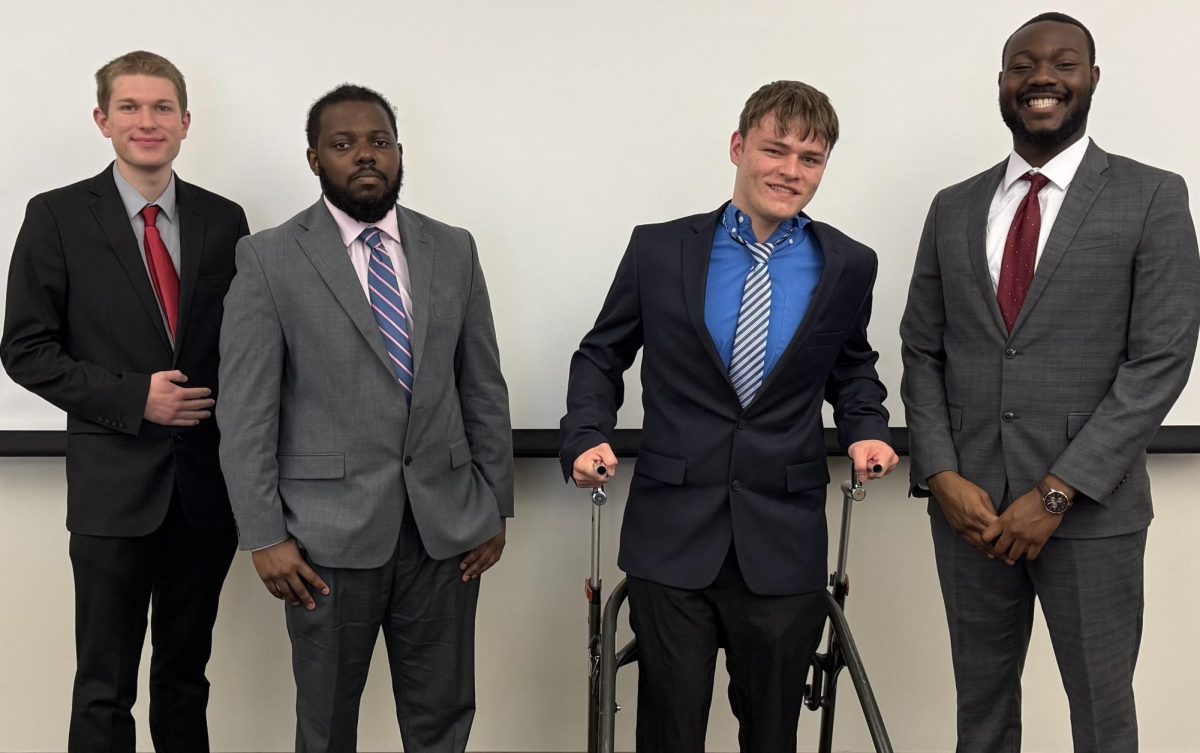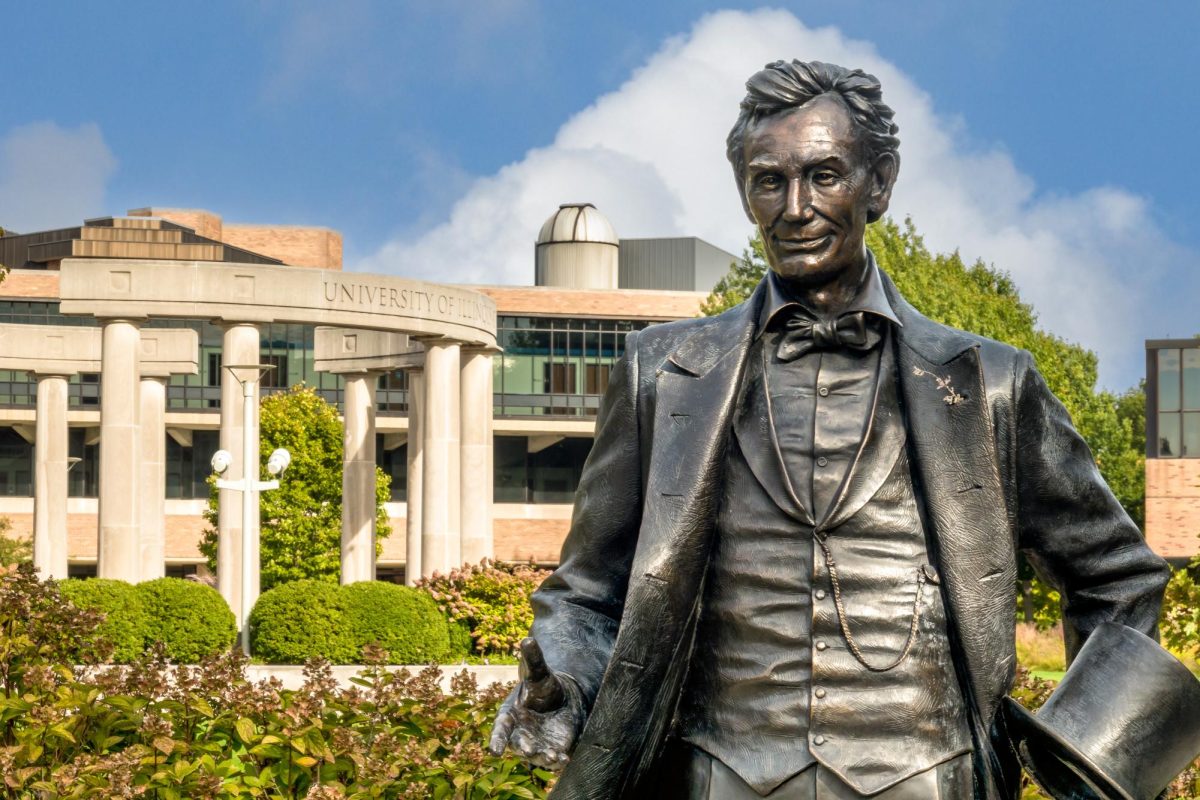Campus administrators address the Campus Senate and international student safety
February 24, 2017
The Campus Senate turned into a contentious town hall meeting last Friday, as campus administrators addressed the issue of “International Student Safety,” while fielding questions and comments concerning the university’s response to the alleged sexual assault of an international student by a “visiting admissions counselor and student advisor.”
Following a discussion regarding two amendments to the Campus Senate Bylaws, senators deferred debate and yielded the floor to Clarice Ford, the interim vice chancellor for Student Affairs, who administered a PowerPoint presentation covering “International Student Safety.”
“We are always …very mindful of our students and what we must do in order to make certain that our students feel safe and welcome at our university,” said Ford.
Donald Mitchell, chief of the UIS Police Department, was the first campus administrator to address the alleged sexual assault.
“We’ve had nine different investigations into this one particular case. … It’s still not over with. We’re still investigating it. I hope it’s done by this summer, but I can’t guarantee you that,” reported Mitchell.
Fernando Planas, the director of admissions, reported that although Xuesong “Gary” Yang, the alleged perpetrator, had been given the title of “admissions counselor and advisor,” he was not under the direct supervision of the Office of Admissions.
“[Yang] was reporting to the College of Business [and Management],” reported Planas in response to a question by Senator Deborah Anthony.
“It’s not clear to me why this individual was employed by two different departments – why one of them was a specific college. … We evidently have no information about the reporting procedures that were taking place. … It was not within the normal student services chain of command,” said Anthony.
In a later interview, Ronald McNeil, the dean of the College of Business and Management, noted that it isn’t clear to whom Yang reported. The Office of Admissions paid 50 percent of Yang’s $30,000 annual salary, while the Academic Division through the College of Business and Management paid the remaining 50 percent.
After the meeting, Senator Eric Hadley-Ives expressed further concerns regarding Yang’s role in the College of Business and Management.
“We had a wonderful [exchange program] with Heilongjiang University, and that was suddenly terminated, but we still have continuing exchange programs. What was [Yang’s] role in those exchanges?”
According to an article recently published in the Illinois Times, Yang told detectives that he recruited 10 exchange scholars to the university in the past year.
Anthony responded to an appeal made by Ford, who implored decision-makers in the room to come together and stop blaming each other for problems Ford contended the Senate also bears responsibility for.
“The university evidently became aware of this in August, and we were not. I became aware of it when I read a newspaper article. So, it’s a little bit difficult to say that we are responsible for it when we were never notified,” said Anthony, who continued, “We read the newspaper and then we get some information claiming that [the newspaper was] incorrect; and that’s all we have. And then the senate is in a position of trying to seek out further information, with some difficulty.”
Mitchell reported that although photographs of Yang were released to the news media after his arrest, the media failed to report the alleged sexual assault until several months later.
“What is the policy for notifying the campus community before it hits the papers?” asked Anthony, in response to Mitchell’s remarks about the media.
Ryan Croke, the associate chancellor for Public Affairs, reported that federal law, in accordance with the Cleary Act, does not mandate universities to report crimes, including sexual assaults, which occur off campus.
The new business of the senate included discussion regarding two amendments.
Resolution 46-12 would amend the Bylaws and thereby eliminate the Research Board as a Senate Standing committee.
Resolution 46-13 would change the composition of the senate committees to include at least one student representative, make sure that all committees are submitting an annual report, and “change some language to make it conform to actual practices,” said Hadley-Ives, who sponsored the resolutions.












